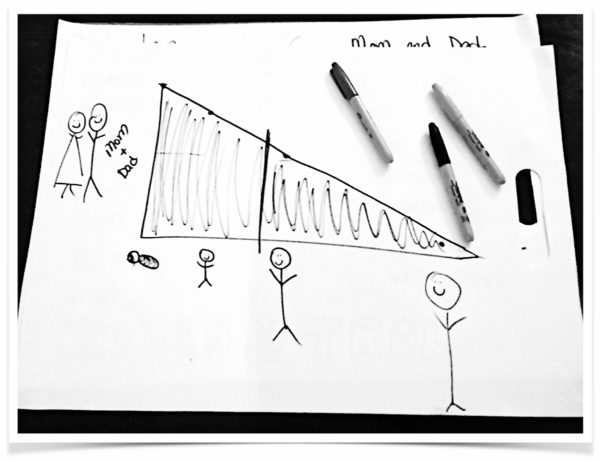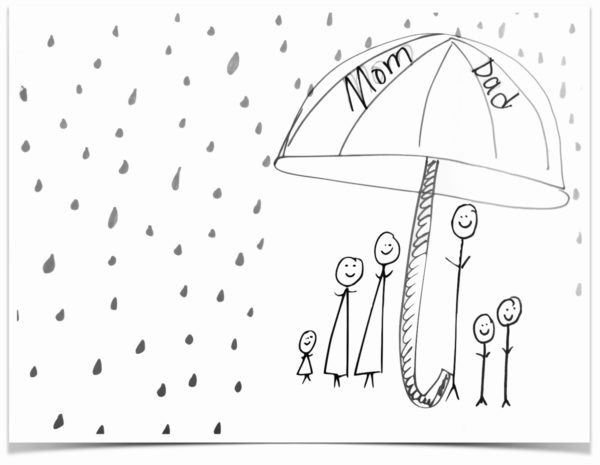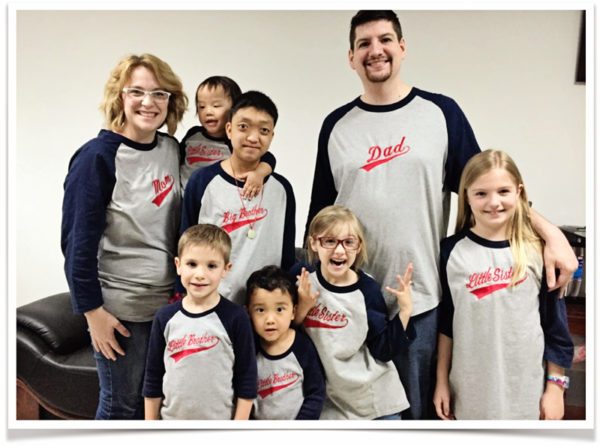It was just about a year ago when our family needed to seek out respite. Our teenage son had been home a year, and emotions were at an all time high – for everyone. On many occasions, we’d reached out to those who could help us or him, but it was time to really take a deliberate break and recalibrate. The respite was set up for six days, Sunday to Saturday.
For the first two and a half days, all I did was try to rest. There had been so much turmoil that I had to will myself to settle down and just stop. It was a hard thing to do! But after those couple of days, I realized I would not really be able to truly rest and let go of the feeling of constant intensity unless I knew what the plan was for bringing our son back home a few days later. Something was going to have to change, but what?
What was even the problem?
Why did he resist me so much?
Why did he hate my help so much?
Why did he take all his anger out on me, but was so kind, polite, and gentle to everyone else?
By Tuesday, it was clear this break needed some intentionality. So, that night, my husband and I went out on a date. I took a notebook.
One thing that I try and do regularly is to put myself in someone else’s shoes. So for our teenaged son, why would I have a problem being teachable if I were in his shoes? Of course, many adoption-related reasons came to mind, but one very distinct reason stood out that evening: he needed to understand what we were doing.
What was our job as parents? What was our goal?
The more we mulled over this thought, the more it made sense. How could he have any desire to trust us and be teachable when he had no perspective of what a parent’s job is?
For all intents and purposes, it looked like we were on some power trip trying to control his every move. I imagine that most of his life had been controlled before, but when it’s done in such an institutionalized setting, how could he come to understand that rules and boundaries developed by a parent are done so out of love and protection? It was like a light bulb was turning on for us. He resented me because all he felt was my control without having any of the perspective or foresight of the end game. There was no groundwork, no foundation to our relationship yet. Basically, I had no credibility. My husband and I hashed out a plan over our burgers, and once I felt like we had a strategy, the rest of the week felt productively restful. I was no longer anxious.
As soon as we brought our son back home and put the other kids to bed, the three of us sat down together to talk. As the three of us talked, I scratched out three quick posters. Ian needed to better understand our mission as his parents – what was our job and responsibility and Who is our boss. I drew out an X-Y axis with a parent-sized person on the Y line. On the X line, I drew several stick figures growing in size from a baby all the way to an adult size on the far right. We explained that when a baby was born, a parent had to control everything for that baby.

We listed out all the things that the baby needs and how the mom and dad care for him. At that time in a person’s life, the parents have complete control and the child is completely dependant on the parent, so we put a dot at the highest point on the parent line. But then we drew a diagonal line sloping down from that point to represent that as the child grows into an adult, the parents’ control diminishes. The child learns to take care of his own needs. At adulthood, the child takes full responsibility and control of his own life. We pointed to where our son was on this grid. With only four years left until he is considered an adult, we had minimal time to teach him how to fully function and responsibly care for himself.
Then we started a second poster. Since he isn’t a baby, it was important for him to be responsible for many things himself with only a few years until adulthood started. We “brainstormed” two lists with him on this poster. (On the Tuesday night date, my husband and I had already figured out some ideas for both sides of this T chart and were prepared for how we’d help the brainstorm session.) The first list was what he controls at his age and the second list was what his parents should still control. On our side, we had Education, Health, Character Development. On his side, we discussed Personal Hygiene, His Bedroom, His Clothes, His Homework, etc. We explained that there were lots of things within his control including his responses, habits, his choice to obey us, etc. If the things that he controls are poorly managed and start to become educational, medical, or character issues then we can still step in and adjust accordingly.
But for the most part, we wanted him to see that we are not being puppet masters. We are setting him up so that he can be a healthy responsible man. The more we talked, the lighter his load visibly became. Not only did he appear to feel empowered, but I would venture to guess that he started to understand a bit more about how our parenting was being done out of love and with wisdom.
Eventually, I drew a final poster for him. I drew slowly so he could continue to process the first two posters. I drew a huge umbrella with six people standing underneath it. There were lots of raindrops, but none were falling under the umbrella.

I asked him who was standing under the umbrella. Clearly thinking this was another lovey illustration, he rolled his eyes and suggested that it was his family. I asked him who specifically. He figured it was us with him. I counted the people out loud and said that there were only six people. He then realized it was just him and his siblings. Dad and Mom weren’t in this picture. I told him that for now, we are the umbrella. It is our job to protect him as much as we can. That if we had known and had God designed it differently, we’d have been that umbrella from the very beginning.
We told him that our rules are for his sake and for the sake of his siblings. We said that we want him to learn the purposes of the rules so that he can take the principles with him when he leaves home. He will always have to answer to someone.
We talked about jobs and being accountable to the boss. We explained that as parents, our authority is God and likewise, our son will always have an authority. He will always have choices to make and we want to equip him as best as we can to act wisely and seek the Holy Spirit, ask for help and be teachable, think of the impact his decisions have on others, and to be able to hold his own umbrella in a few years. He will still need to protect himself (and have a family of his own, too). Just because one becomes an adult does not mean he steps into the rain. It means he’ll need to proactively protect his mind and heart and body.
We have rules about electronics, bikes, food, running into the street after a ball, safe touch, and so on. Now, when he hears us say that he needs to keep his electronics in the main living space and not a bedroom, he knows it’s because we love him – his heart, soul, body, and mind – and want him to stay safe.
When we take him to the eye doctor, he can see that we are providing like good parents do. When I tell him he should limit how much cheese he is eating that day because that’s what is causing his stomach ache, he trusts me that I’m wise enough to know. We haven’t given away all our parenting secrets to him, but we’ve tried to catch him up so that he can start learning from us instead of resenting us as parents.
We’ve also adjusted our parenting so that if he does choose poorly in areas he controls, he can feel the natural consequences. I explain my reasoning, like for too much cheese for example, and then I back off. I often remind him that I’m a good mom to him and that he can trust me. And I ask him to forgive me if I mess up and lose my patience. I’m gaining the credibility not only through explaining our rational and where we get the wisdom from, but also by letting go more and more so that freedom can prove me right.
Teaching our teenage son what parents do and why improved our relationship drastically. But it not only impacted how he sees us. It impacted how we see him. Going through that time of respite and brainstorming, followed by the reunion and dialogue, I became more grounded in the post-adoption attachment and parenting journey. I became more excited for the job I have as his mom. I felt more excited about the road ahead of us – preparing him for his future.

A wise person once told me, “The best parenting is done in the repair work,” and there’s a lot of that! I was able to see more clearly the forest through the trees. And ultimately, God gave me a new joy, a new understanding of our purpose in His calling to teenage adoption.
– guest post by Bethany

























Bethany, Very wise and well thought out! You and Phil are amazing parents. Keep up the Godly work!
wow, what a read, well done to you all